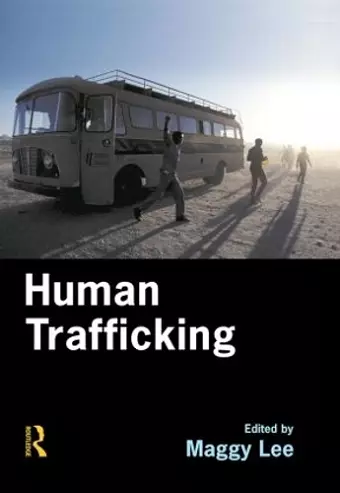Human Trafficking
Format:Hardback
Publisher:Taylor & Francis Ltd
Published:1st Sep '07
Currently unavailable, and unfortunately no date known when it will be back
This hardback is available in another edition too:
- Paperback£38.99(9781843922414)

Human Trafficking provides a critical engagement with the key debates on human trade. It addresses the subject within the broader context of global crime and the internationalisation of crime control. The book takes a broadly discursive approach and draws on historical, comparative as well as the latest empirical material to illustrate and inform the discussion of the major trends in human trafficking. The book helps to develop fresh theoretical insights into globalisation, exclusion and governance, and identifies a new research agenda that will ensure the book is of interest to advanced level students as well as academic scholars.
At last, a practical and sensible law book about human trafficking. This book consists of 240 pages and 10 chapters, each a complete essay by an academic in the field. Human trafficking is one of organized crime's most lucrative markets, with the size of the annual trade ranking behind only drugs and arms. It is almost impossible to know precisely how many people are trafficked every year, but the US State Department estimates the number at between 600,000 and 800,000. Some non governmental organizations put the number as high as 2 million annually. Of the victims, some 80 percent are female and half are minors at the time they are trafficked. This book mainly deals with human trafficking as itaffects immigration policies, prostitution, and cheap labour in the European Union and in particular, in the United Kingdom. It does not particularly address child trafficking, which UNICEF estimates as being more than 300,000 childre nunder 18 who are currently being exploited in more than thirty armed –conflict countries worldwide. Rather, it addresses forced labour, most instances ofthis occurring as unscrupulous employers take advantage of gaps in law-enforcement to exploit vulnerable workers and acknowledges that female victims of forced or bonded labour, especially women and girls in domestic servitude, are often sexually abused. Forced labour is a form of human trafficking that can be harder to identify and estimate than sex trafficking.It often does not involve the same criminal networks profiting from transnational trafficking for sexual exploitation, unlike the salaciousness of the media who feed on scurrilous, often unauthenticated, reports. This book takes a historical approach to the economic, social, political, and cultural aspects of this slave trade, referred to as “chattel slavery†and describes“chattel slavery†as “a condition whereby labourers are legally owned asproperty.†Child labour, the worst form this being targeted for eradication by nations across the globe, is barely addressed in this book. Anychild who is subject to involuntary servitude, debt bondage or slavery through the use of force, fraud or coercion is a victim of trafficking regardless ofthe location of that exploitation. The overall flavour of the book is domestic and a particular subject that it tackles admirably is the ‘ rights of strangers’ into Britain, ie. the rights of non-citizens. This section addresses the rights ofcitizens as defined by various UK and EU laws and policies. It states: “UK and EU legislation and policy are centred on giving effect to classifications of wanted and unwanted migrants. The categories constructed through attempts to manage migration in the interests of nationstates are the basis of inclusions and exclusions from national and EU territories, and are treated as though they are reflections of real differencesin the motivations and circumstances of migrants.†It is enlightening to see the subject of strangers treated, not by pinning the human rights of asylum seekers to the subject, but in a more noble way, by introducing the concept of the “duty of hospitality,†anoble, theoretical construction introduced by the moral philosophers Kant and others. In all, the book’s essays are subtle and philosophical and they remove much of the brashness and the crassness from this emotivetopic, yet bringing the reader back to the legal quandaries of free movement of people, human rights, immigration, and emigration, earning the book a place among the best-written expositions on human trafficking. Sally Ramage
ISBN: 9781843922421
Dimensions: unknown
Weight: 630g
256 pages